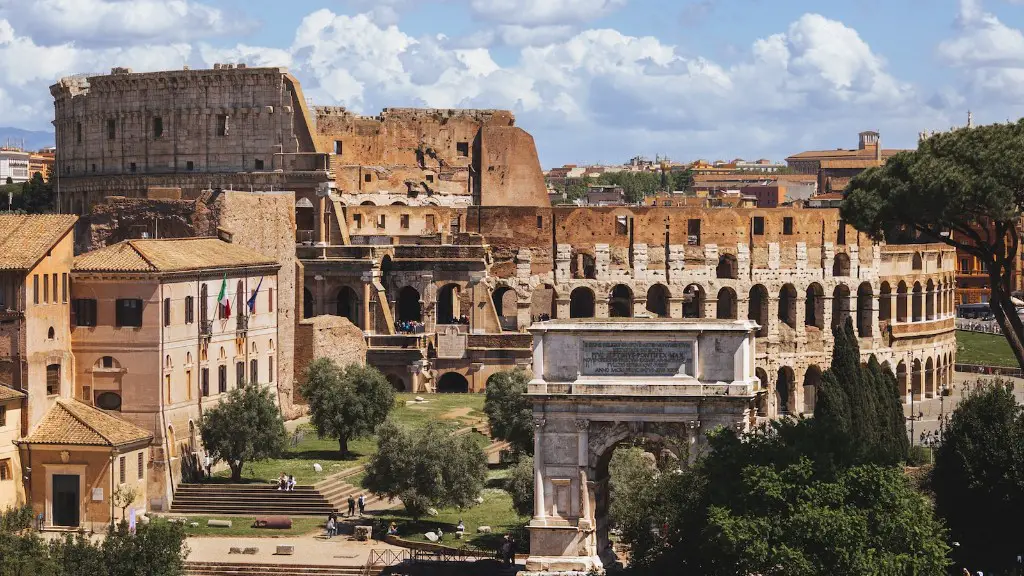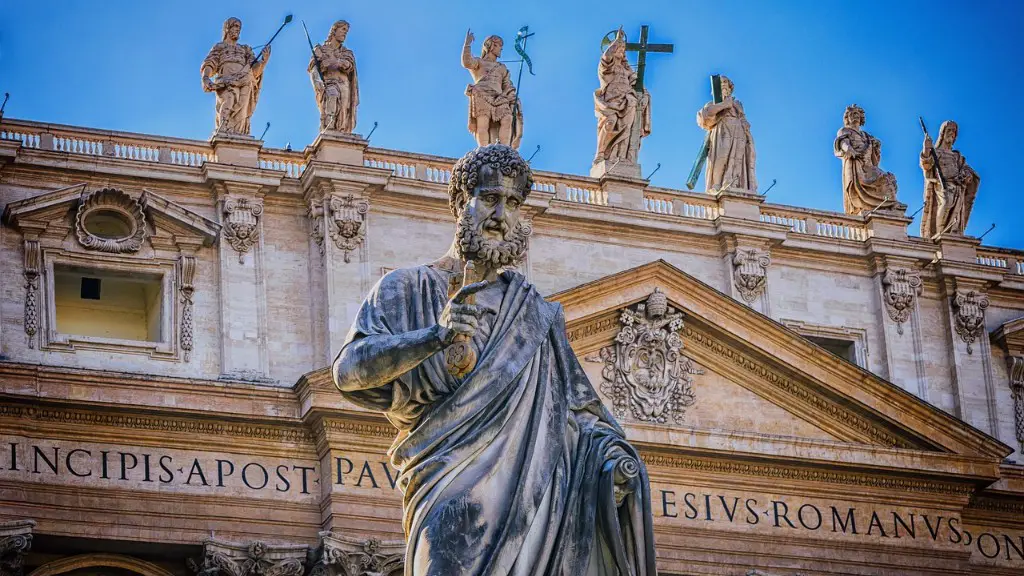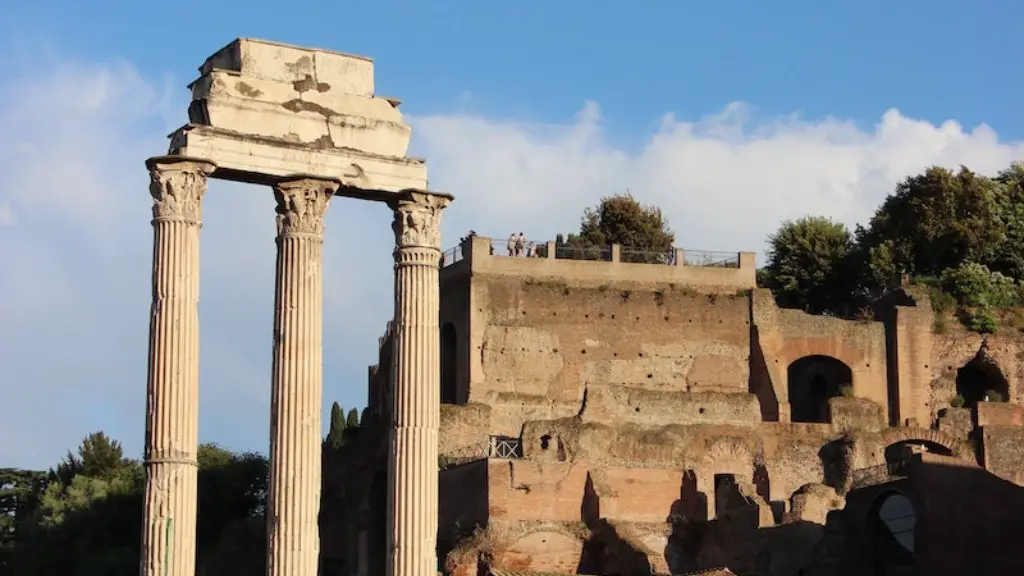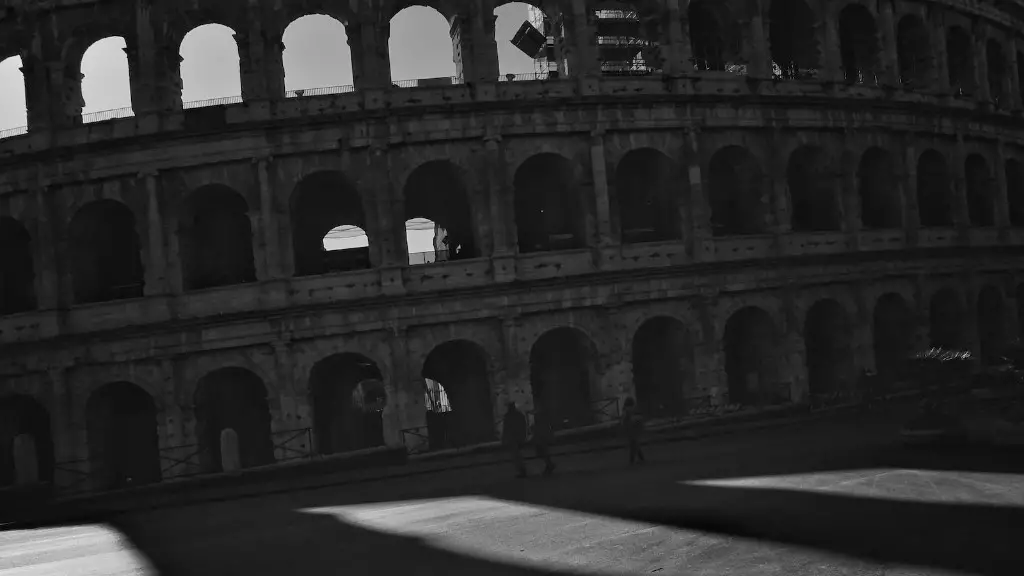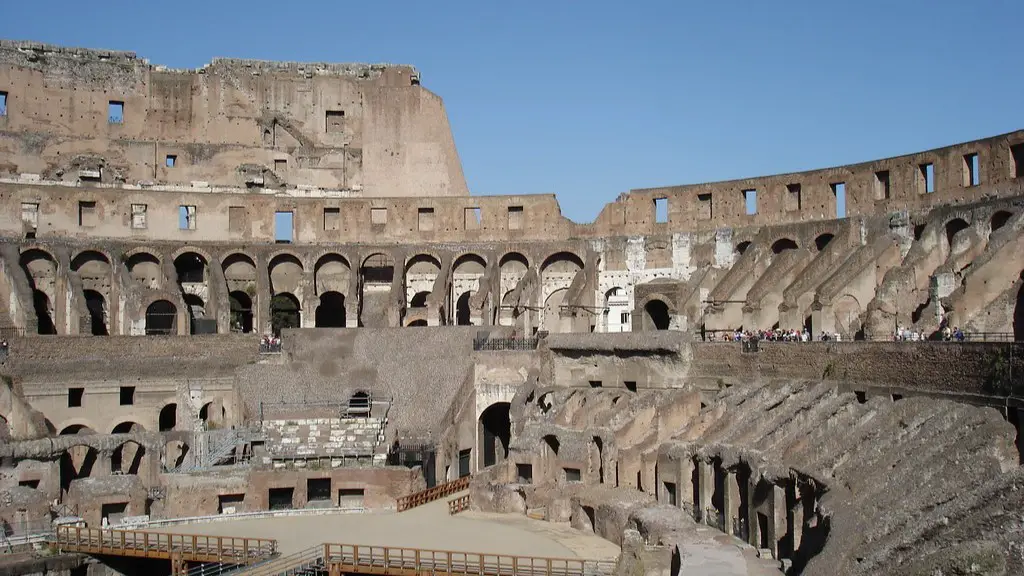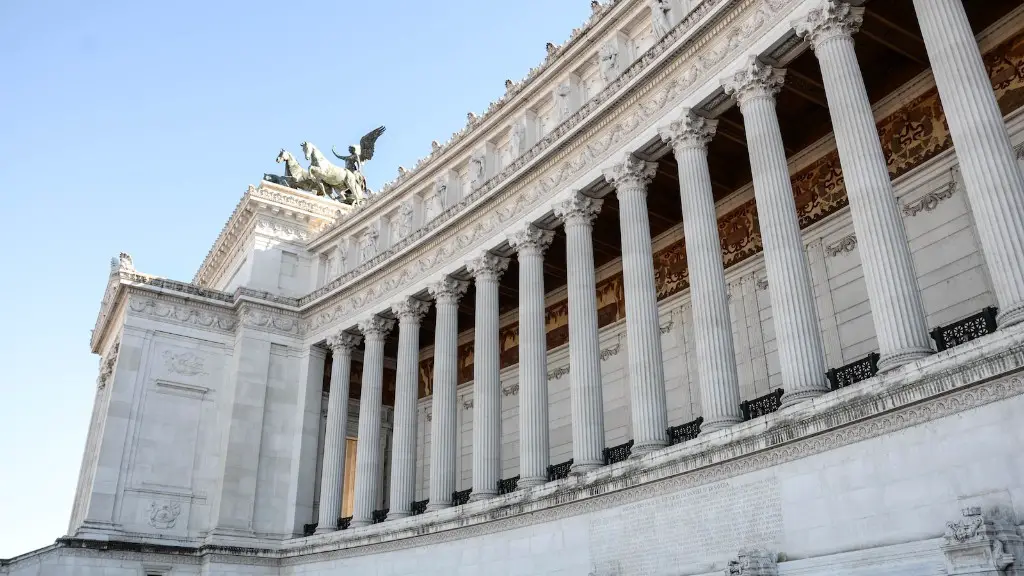Polytheism and Gods of Ancient Rome
Ancient Roman religion was connected closely to their everyday life and traditions. In Rome, people generally believed in and worshipped many different gods and goddesses. They believed in a polytheistic system, meaning a belief in multiple gods, and people were often devoted to one particular god or goddess.
The gods and goddesses in Roman religion had mainly originated from Greek mythology. The chief Roman gods were Jupiter (Zeus in Greek mythology), Juno (Hera), Minerva (Athena) and Mars (Ares). Furthermore, they believed that the gods could take human form and intervene in the daily lives of humans. As such, different gods and goddesses were worshipped with festivals, rituals, and sacrifices.
Every city in Ancient Rome had its own patron deity, or goddess. For example, in Rome, goddess Cybele was believed to have been the originator of the city. The Legend of Aeneas is the origin myth of Ancient Rome and the beloved myth associated with the city claiming that Aeneas founded the city after the fall of Troy. As a result of this myth, forms of ancestor worship were also practised by the Romans. Angering the gods of Rome was believed to bring a terrible fate, and praying to the gods for a successful outcome of an event was an important ritual for the Romans.
These gods were mostly worshipped in temples and people visited supplicants in them for sacrifices and offerings. The Temple of Jupiter Optimus Maximus is the largest and the most important temple of ancient Rome, situated on the Capitoline Hill. Roman temples were usually forbidden places, accessible only to the priest and other people who left offerings to the gods. Offerings could consist of food, weapons, or animals that were sacrificed in honour of the gods.
Augury and Animal Sacrifice
Another fundamental aspect of ancient Roman religion was Augury, or the art of “divining” with the help of birds or other animals. It was a religious practice in which the behaviour of an animal or bird was observed in order to predict the future events. Special augurs, or prognosticators, were responsible for predicting the future outcomes or analyzing divine signs of Romans.
Sacrifice was a big part Roman religion. Animal sacrifice was extremely important and carried out regularly. During sacrifice, the animal was killed and its entrails were examined for any further divine signs. On some occasions, even humans were sacrificed for the well-being of the people and the gods. They believed that these sacrifices helped the gods to be pleased and respond to their requests.
The main event of animal sacrifice was the temple cult. Sacrifices were performed within the temples and the walls of their holy sites. They believed that their gods and goddesses were present at these rituals and received the offerings. Also, live music and dances were part of the sacrifice rituals, and religious songs were also sung in the honour of gods.
Imperial Cult and Mithraism
The concept of imperial cult was another important aspect of ancient Roman religion. This cult was mainly based on the worship of the ruling emperor. People believed that the emperor was a supernatural being and the “son of gods”, which encouraged them to worship him as a sacred figure. Also, temples were built across the Roman Empire to honour the emperors.
Apart from the traditional Roman religion, another important belief system in Ancient Rome was Mithraism. It was also known as the mysteries of Mithras and it was a religion of Persian origin. According to this belief system, Mithras, the god of light and truth, defeated a bull after immersing himself in a cosmic battle. This story had a strong influence on Mithraism, which was very popular in Ancient Rome, especially among soldiers.
Organisation of Roman Religion
The Roman priestly class was responsible for conducting religious ceremonies and rituals, and supervised the worships of the gods. They were known as Pontifices and were the spiritual leaders in Rome and had a significant influence in their society.
Priests were usually appointed by the Roman Senate and their main roles were to interpret Roman laws in a religious context and ensure that the rules of religion were being obeyed. Also, they were responsible for maintaining temples and making sure that the purity and sanctity of the places were maintained. They organised festivals and rituals and were responsible for doing the sacred duties associated with them.
Christianity in Ancient Rome
Christianity was a small religious minority in Ancient Rome until the fourth century. It had started with a small group of followers in the city and slowly it had gained a lot of attention in the city. In the fourth century, Christianity became a formal religion in the Roman Empire and it began to establish itself as an important religion.
Christians in Ancient Rome were persecuted by the Roman authorities as they refused to worship the gods of the state and they regarded the worship of any other gods as a form of idolatry. This had made them unpopular but despite the strong opposition from the government, Christianity managed to survive and spread. Gradually, it replaced the traditional Roman religion and by the fifth century, Christianity was accepted as the official religion of the Roman Empire.
Significance of Roman Religion
Ancient Roman religion was immensely important for Roman society and had a significant influence on their beliefs and thoughts. It influenced their way of life and culture. This religion also helped to establish strong hierarchical structures and regulations in the Roman Empire.
Roman religion also had a great influence on the Renaissance. It inspired Renaissance writers, thinkers, and artists and their works were highly influenced by the gods and goddesses of Ancient Rome. For example, Homer’s Iliad and Odyssey, Virgil’s Aeneid, and Ovid’s Metamorphoses are some of the famous works based on the gods and goddesses from Ancient Rome.
Roman Religion in Modern Western Culture
Roman religion and its gods and goddesses were not only important for the Ancient Romans but also for the modern Western culture. The Pantheon of Roman gods and goddesses has been used in modern literature and culture such as in The Wizard of Oz, Harry Potter, Percy Jackson, and Star Wars.
In modern Western culture, concepts of Roman religion have also been used in certain holidays and occasions. For example, the Festival of Saturnalia is known as Christmas today, while the spring festival of Floralia is associated with the celebration of Easter. Since ancient times, symbolic references and concepts related to Roman religion have been used in modern Western culture.
Influence of Roman Religion on Society
Ancient Roman religion was highly influential for the society of Ancient Rome. It supported the belief in positive values such as honesty, generosity, truth, and honour through its gods and myths. Romans believed that creating harmony between humans and gods was highly essential and fundamental for their empire.
The gods and goddesses in this religion were believed to be powerful and were highly revered by the Romans. People believed that worshipping them prevented any misfortune and through rituals and sacrifices, people tried to get their favour.
Beliefs and practices of Roman religion were important for the Ancient Romans but their influence on modern Western culture is also immense. People today still use references to ancient Roman religion in their writings, artworks, and culture, and we are still influenced by the ideals of this ancient faith.
Conclusion
Ancient Roman religion was highly important for the society of Ancient Rome. It was based on a polytheistic system and Romans believed that the gods could take human form and intervene in their daily lives. They worshipped different gods, prayed to them and sacrificed animals or humans to seek their favour. Imperial cult was an important aspect of Roman religion, which was based on the worship of the ruling emperor.
Apart from the traditional Roman religion, Mithraism was also important and it was a religion of Persian origin. The priests were responsible for conducting religious ceremonies and rituals, and Christianity gradually replaced Ancient Roman religion in the fourth century. Roman religion had also greatly influenced modern Western culture and its ideals are still important today.
